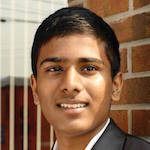The Hypocrisy Of Aung San Suu Kyi
 Aung San Suu Kyi, in 1997, once famously said—“please use your liberty to promote ours.” After having spent 15 years under house arrest, she later became the de-facto leader of Myanmar. She became the de-facto leader after having led the National League for Democracy (NLD) to a majority win in Myanmar’s “first openly contested election in 25 years in November 2015. The win came five years to the day since she was released from 15 years of house arrest.” However, as the de-facto leader, she is now using her new found liberty to stifle the freedom of the Rohingya people and has become complicit in what the UN High Commissioner for Human Rights has labeled as a “textbook example of ethnic cleansing.”
Aung San Suu Kyi, in 1997, once famously said—“please use your liberty to promote ours.” After having spent 15 years under house arrest, she later became the de-facto leader of Myanmar. She became the de-facto leader after having led the National League for Democracy (NLD) to a majority win in Myanmar’s “first openly contested election in 25 years in November 2015. The win came five years to the day since she was released from 15 years of house arrest.” However, as the de-facto leader, she is now using her new found liberty to stifle the freedom of the Rohingya people and has become complicit in what the UN High Commissioner for Human Rights has labeled as a “textbook example of ethnic cleansing.”
Suu Kyi has become a hypocrite. She spent years peacefully fighting for her own freedom but now has stood by and supported the rape, displacement, and the ethnic cleansing of thousands of Rohingya people. Suu Kyi, despite encouraging many to rally for her release when she was under house arrest, has told the international community to stop clamoring about the atrocities against the Rohingya people. The fact that members of the international community are raising awareness of the atrocities is apparently, according to Aung San Suu Kyi, “makings things worse.”
On July 6th 1995, in Sri Lankan Parliament, Dr. Neelan Tiruchelvam supported a Private Members Motion calling for the release of Aung San Suu Kyi, who at the time had been serving her seventh year of detention without trial. The following are excerpts of the speech Dr. Tiruchelvam made in Parliament:
“In view of the strong historical and religious links between our respective countries, which have extended from the eleventh and twelfth centuries, Sri Lanka and this House have special reasons to express concern with regard to developments in Myanmar. The Polonnaruwa Kings, Parakramabahu I and Vijayabahu I forged close political links with Burma, then known as Ramanna. These links were further consolidated by the close affinity between the Theravada Buddhist traditions in Burma and Ceylon. Vijayabahu I turned for assistance to Burma in reorganizing the Sangha in Ceylon.
These religious and cultural links have endured through the centuries and, most particularly, during Burma’s struggle for independence under the leadership of Aung San. This motion symbolizes continuing respect and affection of the people of Sri Lanka for the indomitable spirit and courage of the people of Burma, who have overcome many setbacks in their long and troubled history… In the struggle for human values, even the smallest initiative can create ripples that become waves that reach beyond the shores of our island.
The recent troubled chapter in Myanmar’s history commenced with the assumption of power by the Burmese army on September 18th 1988. General Saw Waung, the chief of staff of the armed forces, announced that the military had assumed power and abolished all civilian government institutions. The military established a 19-member military ruling body, the State Law and Order Restoration Council (SLORC). On the SLORC’s orders the armed forces forcibly crushed the pro-democracy demonstrations that had engulfed Burma in the previous months. In the days that followed, hundreds and perhaps thousands of people were shot and killed in the streets of Rangoon and elsewhere. Public demonstrations were banned, and there were mass arrests of students, political activists, opposition party members and Buddhist monks.
A second crackdown in July 1989 resulted in the detention of opposition leaders, including the leader of the National League for Democracy (NLD), Aung San Suu Kyi. Despite the continuing political repercussion, the national election held on May 27th 1990 was a stunning victory for the political opposition to the SLROC’s rule. The NLD took 392 out of the 485 contested seats in the National Assembly versus only ten of the military backed National United Party. The results of this election are yet to be honored, and there has been no transfer of power to civilian rule”
Four days after Dr.Tiruchelvam gave his speech in Sri Lankan Parliament; Aung San Suu Kyi would be released from house arrest on July 10th 1995 only to be placed under house arrest again in 2000.


